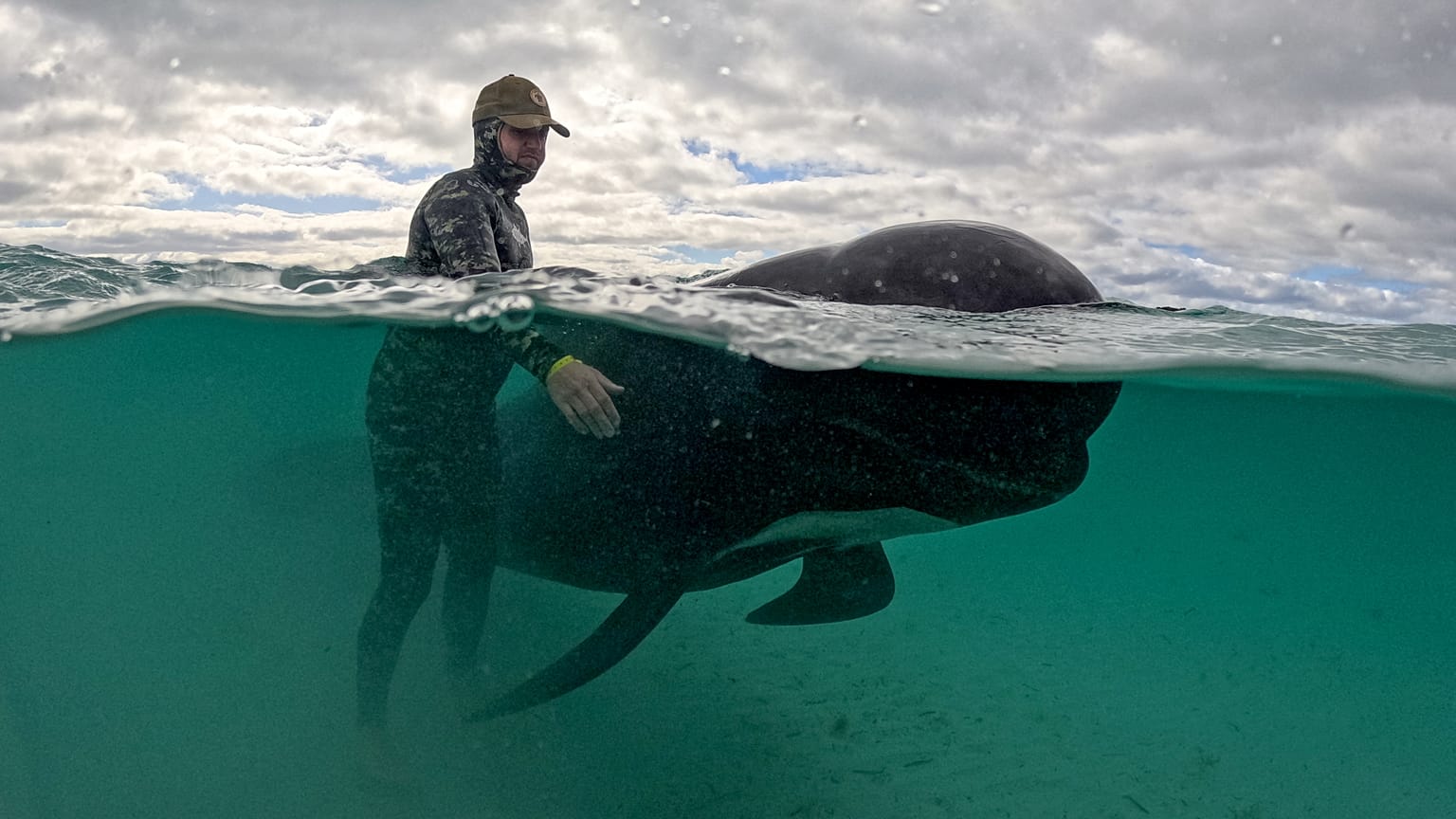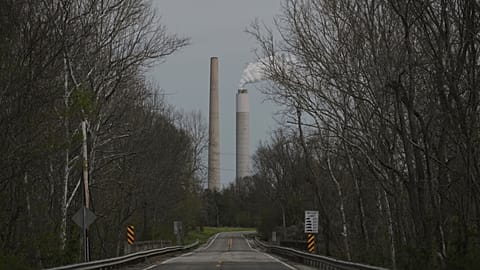The reason behind the stranding is unknown but pilot whales have a social nature which can lead them to follow pod-mates into danger.
A tragic incident has unfolded in Western Australia as more than 50 pilot whales died after becoming stranded on a beach near Albany.
Experts from the state's Parks and Wildlife Service were joined by volunteers who worked through the night, braving cold temperatures to monitor the whales.
The service confirmed on Wednesday morning that 51 of the animals had died.
With the hope of saving the remaining 46 whales, the Parks and Wildlife Service is collaborating with volunteers to guide them back into deeper waters.
Volunteers, clad in wetsuits, were seen diligently assisting the distressed whales on the beach earlier today.
A spokesperson for the Parks and Wildlife Service said it had been "overwhelmed with hundreds of offers of help". It now has enough volunteers and the public have been advised to stay away from the beach for safety reasons.
"The priority focus of the Incident Management Team is to ensure the safety of staff and volunteers and the welfare of the whales," they added.
"The response zone has a range of hazards, including large, distressed and potentially sick whales, sharks, waves, heavy machinery and vessels."
Why do whales beach themselves?
Mass strandings of pilot whales are not uncommon in Australia and New Zealand.
Last October, around 500 pilot whales died when they beached on the remote Chatham Islands in New Zealand.
Scientists do not fully understand why these mass strandings occur. One possibility is that the highly sociable nature of pilot whales leads them to follow pod-mates who may venture into dangerous waters.
Bec Wellard, a marine mammal scientist at Project Orca, said the reasons for whale strandings were still not known for sure. "We still don't know why - if we did, we could perhaps do more to prevent it,” she told AFP.
Wellard added that, if the surviving whales' health is compromised, an assessment needs to be made as to whether efforts to refloat them "could just be prolonging their suffering".


















